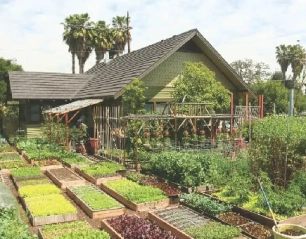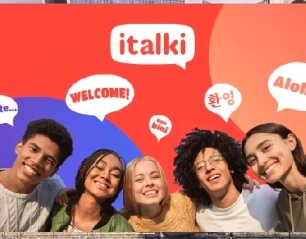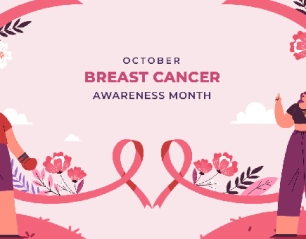Labor Day in America, generally on the first Monday of September, is more than just a long weekend that signals the unofficial close of summer; it stands for something much greater. Nevertheless, Americans look at this day differently because they commemorate its workers and their historic role in building the country’s history and economy. The present composition expounds on why Labor Day is significant, its historical background, and how it commemorates and honors people who belong to American industries.
Historical Origins of Labor Day
The rise of labor unions in America can be traced back to the late 19th century, an era characterized by rapid industrialization and consequent social and economic changes. The factories grew; workers were very much needed and forced labor with long working hours and little pay was observed. This caused union formation among employees.
The Pullman Strike of 1894 became an indication that the working conditions in all the railways in America were not good enough. As such, it was a signal for the need to improve labor codes as there was a showdown between the workers and the government. Consequently, these circumstances led to President Grover Cleveland and Congress declaring Labor Day a national holiday because of pressure from labor unions. Initially celebrated on September 5th, 1882 by New York City’s Central Labor Union (CLU). Its popularity grew very fast hence it became an official national holiday known as Labor Day in 1894. It aimed at both leisure after hard work plus demonstrating unity and strength of the labor movement.
The Meaning of Labor Day
Hard work, commitment and resilience are some of the values that this day symbolizes. It is a day when we should think about how far we have come concerning labor rights and recognize efforts being made by employees around different sectors. The American worker’s pioneer spirit and originality have been the force that keeps America moving forward economically.
The history of America’s workforce has encountered several obstacles such as hazardous conditions found in early industrial factories and changing demands of modern times. Nonetheless, they have always remained committed to excellence and progress. It is worth noting that Labor Day was established to commemorate this dedication and honor all achievements made through hard work and collective effort.
Celebrating Labor Day
The Labor Day celebrations are as varied as the populations they represent. From parades and barbecues to local events and family gatherings; these bring people together regardless of their background or status in life to commemorate hardworking individuals who contribute significantly to the welfare of society. There are different ways for you to celebrate this day, but here are some popular ones:
- Parades and Festivals: Many cities arrange Labor Day parades as well as festivals, which feature floats, performances and speeches that commemorate the contribution of work. Also, there is often live music from local bands; food tasting by local vendors; and art exhibitions; among other family-oriented activities to bring out the festive mood associated with the holiday. Furthermore, some parades have historical reenactments or presentations on the labor movement aimed at teaching people about its importance.
- Picnics and Barbecues: Commonly, families will either host picnics or go for barbecues during Labor Day. This happens because it is a time for families to have their last meal outside together in summer. A tradition that enables informal recognition of hardworking individuals every day as well as relaxation while enjoying delicious meals. They usually grill hamburgers, hotdogs and corn on cobs around their home’s barbeque pits where they enjoy this celebration thereby making their neighborhood feel homelike again.
- Community Service: That is why celebrating Labor Day by giving back to the community is another way of doing so which has a true meaning. Some individuals volunteer their time to support local charities or organizations that reflect the common spirit and service found in trade unions. Voluntary work can consist of things like neighbourhood clean-up campaigns, organizing food drives, and helping out at local animal shelters. By engaging in these acts of kindness, they once again emphasize the critical importance of assisting others’ well-being thus emphasizing collective qualities which are brotherhoods.
- Educational Events: On Labor Day, some communities and organizations use this day as an occasion to educate people about labor history and workers’ rights. Workshops, lectures and exhibits can offer valuable glimpses into the trials and tribulations faced by labor unions over time thereby increasing appreciation of what workers go through. Schools or museums could decide to have special assemblies or exhibits that delve deeper into issues such as how labor was reformed from a historical perspective; changes in working standards over time; and current attempts at promoting justice among employees.
- Time to Rest and Think: For most individuals, Labor Day may be a chance to induce absence from the day-by-day crush, unwind and spend time with family and companions. It’s a minute of gradualness in which ready to reflect on our occupations and their effect on us and our communities. This day could be spent at the beach in leisure, hiking with children or simply relaxing at home; all this emphasizes the importance of work-life balance as well as taking some time off.
The New Workforce
Work has changed in today’s fast-growing economy. The nature of work is changing due to technological advancement, globalization, and changes in labor standards that have resulted in many industries becoming different. There are many professions found in today’s workforce that are made up of individuals who occupy multiple roles ranging from those involved directly in manufacturing processes to those engaged in technology-driven jobs.
On this Labor Day, we must identify and respond to those changes. Necessary still is the backing of employees through equitable remuneration systems, safety at work and opportunities for self-advancement. Furthermore, recognizing the accomplishments made by individuals in emerging professions is very important for having a complete celebration of Labor Day. These may include acknowledging gig workers as well as remote employees and those in fast-expanding areas like tech or healthcare.
Looking ahead for betterment
Labor Day is more than a commemoration of what has already been achieved. It is an appeal to keep on advancing labor rights as well as improving working conditions. The determination of the American worker though is enough proof that resilience and innovation are fundamental to development. While celebrating this spirit, it should also be time to think about what lies ahead for our jobs and how we can assist upturning people entering into the workforce during these next years.
We can celebrate Labor Day by being grateful and dedicated to it; this is the means we should pay our respects to those who have labored all their lives to build and sustain American society. Community activities, school-related events or just taking a minute to acknowledge the work of others are some of the ways through which such information is passed across on Labor Day. It serves as a constant symbol that reminds us about labor’s worth and respectability.
Conclusion
This year, let’s commemorate Labor Day by acknowledging how much value and commitment American workers have. Let us reflect on what has been achieved so far in the field of labor rights as we enjoy the special events that accompany this day. Parades, picnics or community service are some of the ways to honor and appreciate hard work on Labor Day. Please take part in it today as both a celebration and tribute to the lasting spirit of America’s working class.
Frequently Asked Questions (FAQs)
Labor Day is a public holiday in honor of American workers and marking summer’s end.
It was first held on September 5, 1882, in New York City celebrating labor unions.
You could go for parades, have a picnic or contribute towards the community and remember laborers’ successes.
Was this helpful?

































































































































